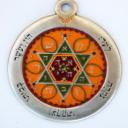Yahoo Answers is shutting down on May 4th, 2021 (Eastern Time) and beginning April 20th, 2021 (Eastern Time) the Yahoo Answers website will be in read-only mode. There will be no changes to other Yahoo properties or services, or your Yahoo account. You can find more information about the Yahoo Answers shutdown and how to download your data on this help page.
Trending News
Is it True?...........Read details……..?
Jain Yogi Hera Ratan (born 1937 Sep 12) was said to be living by drawing energy from Sun. NASA scientists invited him for their research to find how to live by drawing energy from sun. The yogi subjected himself to the research under controlled conditions. He was living without food for 211 days in Kolkatta in 1995-96. Again, in 2000-01 he was under medical observation of 21 specialist docors team, for 411 days without taking food or water in Ahmedabad. After this in Pensylvania Philadelphia he was under observation of Dr Andrew Newberk of Thomas burson university for 130 days under brain scan, in his usual non eating state.
.
@ rraj
Nice analysis
.
@ cpsingvi sir,
Wow....you also were in fasting for 8 days !...........amazing!
I can not fast more than one day.
.
@Aparna,
Question was floated on receiving a mail on this from Poondi B Sir who left Yahoo Answers very recently. Courtesy to Poondi B Sir.
11 Answers
- rrajLv 61 decade agoFavorite Answer
Not believable. Though it may be fact that people can live without food and water for that long period (eat air not sun) . if the practice of living without food /water were practiced by the sidhas , sadhus, saints in olden days during their penance. then it may be possible to live without food. but not with the regular modern life style.
http://en.wikipedia.org/wiki/Inedia
"A third study allegedly lasted for 130 days in Philadelphia, Pennsylvania, at Thomas Jefferson University and the University of Pennsylvania under the direction of Dr. Andrew Newberg and Dr. George C. Brainard. Dr Sudhir Shah, who led the previous study, acted as an advisor and consultant to the USA team. However, Dr. Andrew Newberg said that Hira stayed at the University of Pennsylvania only for brain scans on studies of meditation, not his ability to fast indefinitely. Following that statement, Newberg denied ever undertaking the 130-day study"
did bit of googling..
------------------------
Ahmedabad: The Defence Institute of Physiology and Allied Science (DIPAS) has found few facts corroborating the claim of Prahlad Jani, the 82-year-old miracle man from Gujarat, "of living without food and water for more than seven decades."
DIPAS, in an update posted on its website on the observational study of Jani, done here at Sterling hospital stated, "It is hypothesized that Prahlad Jani has some extreme form of adaptation to starvation and water restrictions."
---------------------------
Real Life Examples of Living Without Food
I did some research on people who have gone without food for extended periods of time:
Medical Doctors Commonly cite 4 to 6 weeks without food
10 Political Prisoners in Ireland Lived 46 to 73 days before succumbing to lack of food
12 individual starvation protestors Two lost tongues, 1 lost feet, 7 on kidney dialysis
Many war prisoners Lived 28 to 40 days with no food
World War II concentration camps With only 300 to 600 calories per day, many thousands did not have enough food to survive more than a few months at best.
Terminally Ill patients Live 10-days to 3-weeks without food depending upon initial heath
Obese Can live from 3-weeks up to 25-weeks and more without food depending upon initial health and amount of fat
Mahatma Gandhi Survived a 3-week fast while in his 70's
Source(s): http://www.survivaltopics.com/survival/how-long-ca... http://www.zeenews.com/news641694.html - BrahmandaLv 71 decade ago
In india this is done by many yogis.They take energy from Sun directly hence do not require food. In Auto bio graphy of a yogi by Parama hans yogananda there is mention of two such yogis.The yogi from Gujrat whom you mention was shown on the TV also.
- ShoumLv 61 decade ago
Yes. It is possible by practice. There are some institutions spread these sidtha tectonics. Few months ago a demo was carried out at Madurai Sangith Samj whose body energy was boosted when he walked in the sunlight on a sand surface.
- 1 decade ago
Yes it is true.Jains have the habit of fasting during their life.I myself a jain did not take food for 8 days , continuously , and my sister 31 days .So, nothing new for us.
Source(s): jain saints - How do you think about the answers? You can sign in to vote the answer.
- 1 decade ago
i will support 52 days...because TELUGU man POTTI SRIRAMULU fasted unto death for a separate telugu state in India.
my experience is 8 days.
- YummyDootLv 51 decade ago
He might be from outer space.
I mean how could that be possible for a human. This piece of news is difficult to believe and hard to digest.
- 1 decade ago
Inedia ( "fasting") is the ability to live without food. The word was first used to describe a fast-based lifestyle within Catholic tradition, which holds that certain saints were able to survive for extended periods of time without food or drink other than the Eucharist.
Breatharianism is a related concept, in which believers claim food and possibly water are not necessary, and that humans can be sustained solely by prana (the vital life force in Hinduism), or according to some, by the energy in sunlight (according to Ayurveda, sunlight is one of the main sources of prana). The terms breatharianism or inedia may also refer to this philosophy practised as a lifestyle in place of the usual diet.
While there is not peer verified scientific support for the claims, some promote the practices of breatharianism as a skill which can be learned through specific techniques
Nutrition science indicates that fasting for extended periods leads to starvation, dehydration, and eventual death. Carbohydrates, fats, and proteins are the body's only observed sources of energy. In the absence of calorie intake, the body normally burns its own reserves of glycogen, body fat, and muscle. Breatharians claim that their bodies do not consume these reserves while fasting.
Few breatharians have submitted themselves to medical testing; of those that have, none have undergone peer review with results independently reproduced. In a handful of documented cases, individuals attempting breatharian fasting have died
Hira Ratan Manek (born September 12, 1937) claims that since June 18, 1995, he has lived exclusively on water, and, occasionally, tea, coffee, and buttermilk. Manek states that sunlight is the key to his health, citing the Jainist Tirthankara Mahavira, ancient Egyptians, Greeks, and Native Americans as his inspiration.
According to his website, three extended periods of his fasting have been observed under control of scientific and medical teams, the first lasting 211 days in 1995-96, in Calicut, India, under the direction of Dr C. K. Ramachandran. During that period he is reported to have lost 41 kg.
The second study lasted 411 days in 2000-2001, in Ahmedabad, India, under the direction of a 21 member team of medical doctors and scientists led by doctors Sudhir Shah and K. K. Shah, a past President of the Indian Medical Association and current Chairman of the Jainist Doctors' Federation (the latter group aims to "Promote scientific research and medical education based on principles of Jainism"). Dr K. K. Shah said "Fasting is a method of curing the meditation of mind and body which has been proved by great jain monks, sanyasis and munis of ancient times. There is a need to propagate these methods during this age of increasing diseases of the body and mind due to over consumptions and increasing with fasting would help maintain perfection.". Dr Sudhir Shah was also involved in the study of Prahlad Jani.
The paper published by Dr Sudhir Shah makes it clear that dozens of people had access to Hira Ratan Manek during the study and he went on at least one excursion: "Most surprisingly, he had himself climbed the famous Shatrunjay mountain (Palitana hill) on 4.4.01, on 401st day of his legendary fasting along with 500 fellowmen without anybody’s help, within 1.5 Hrs. only". The paper reports that the subject lost 19 kg of weight during the study period. Neither the experiment, as described in the paper, nor the paper itself have been validated by any other well-known scientific or medical journal.
A third study allegedly lasted for 130 days in Philadelphia, Pennsylvania, at Thomas Jefferson University and the University of Pennsylvania under the direction of Dr. Andrew Newberg and Dr. George C. Brainard. Dr Sudhir Shah, who led the previous study, acted as an advisor and consultant to the USA team. However, Dr. Andrew Newberg said that Hira stayed at the University of Pennsylvania only for brain scans on studies of meditation, not his ability to fast indefinitely. Following that statement, Newberg denied ever undertaking the 130-day study
Roman Catholicism also has traditions of inedia, in which saints, as well as Jesus, are claimed to have been able to go for months or years without any food (or with no food but the Eucharist).
Paramahansa Yogananda's Autobiography of a Yogi details two alleged historical examples of breatharianism, Giri Bala and Therese Neumann.








